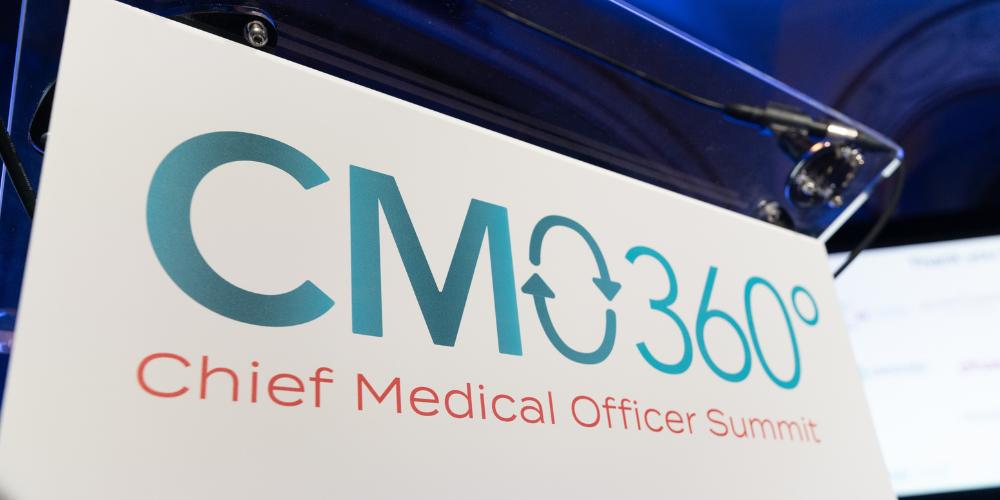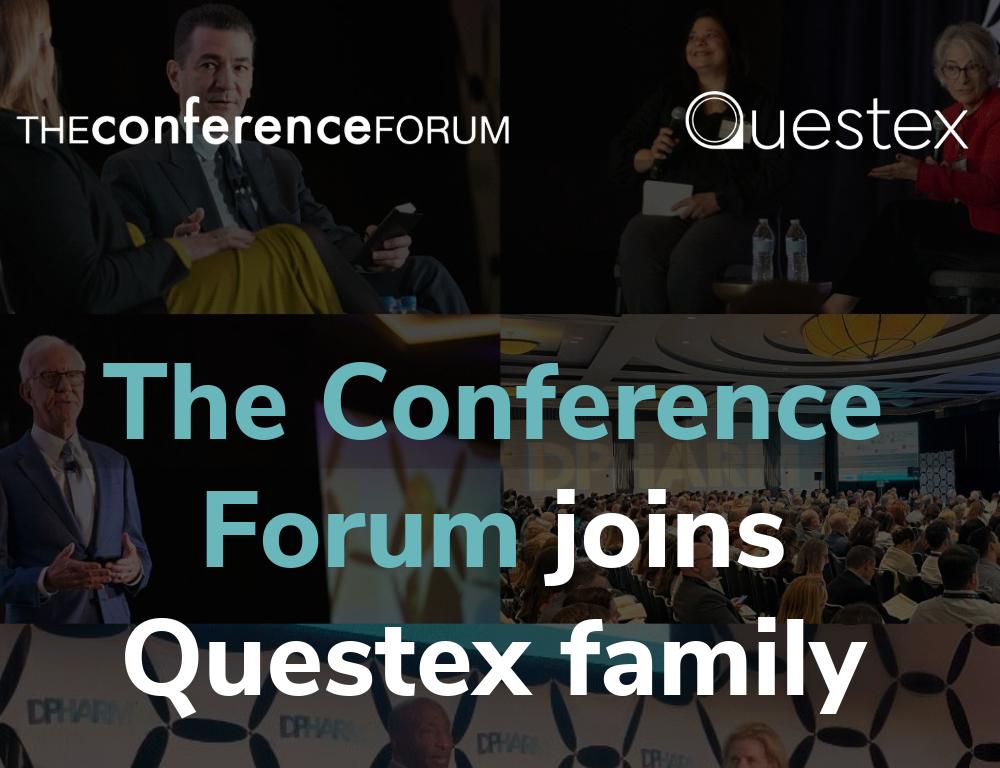
What should CMOs be looking for when they are thinking about joining a company?
It’s probably easiest to start with understanding a culture by understanding the CEO. What you’re looking for can vary between companies, but as somebody who will work closely with a CEO, it’s absolutely critical that you feel comfortable being yourself around the CEO. And you also want the CEO to show some emotional intelligence about managing people with different styles.
As CEOs set the tone for the whole C-suite, C-suite, I like to hear how they describe their management style and establish culture. It’s reassuring to have somebody who can describe functional culture and what they are looking for in a CMO without specifying down to the style of the CMO to get things done.
How can you learn about a company’s culture?
I often start with my own philosophy, which is built on a book called The Five Dysfunctions of a Team by Patrick Lencioni. I talk about the enabling behaviors of a high-performance team, the basis of which is professional trust established by communicating, collaborating and setting appropriate expectations. For example, if you can get a project done, tell them you can get it done. If for some reason later you cannot, tell them why. If you cannot take it on in the first place, explain why. This establishes professional trust.
When you trust someone, you can disagree with them. If you are unwilling to express your own disagreement because you are afraid of an authoritative figure, your voice isn’t heard. Then when a decision is made, your thoughts aren’t considered and it becomes difficult to commit to the decision. Then it becomes difficult for people to hold you accountable because you can later say that you didn’t agree or didn’t commit. And then you don’t focus on results.
My philosophy of culture is based on the five enabling behaviors of professional trust, early disagreement and debate, commitment, accountability and focus on results. When I start that conversation, listening to the responses of the interviewer and understanding if what I’m saying resonates, provides me with comfort that I’ll be entering an environment consistent with my own values.
"Your ability to attract talent is directly related to your ability to communicate that excitement to people who are interviewing for the job."
Any additional red flags?
If you hear C-suite members confidentially share negative aspects of the culture and of their colleagues, this can indicate a lack of harmony in the C-suite. From my perspective, I look for a C-suite that is excited about the mission. Throughout the interviews, I want to hear consistent alignment and enthusiasm behind that vision and mission.
How do you build a high-performing team as a biotech CMO?
I'm going to make the assumption that you have been very careful in your choice to find a company with a mission that gets you personally excited. What brings me to that point of commitment is the opportunity to really help patients with excellent science. Your ability to attract talent is directly related to your ability to communicate that excitement to people who are interviewing for the job. If you are not excited, you won’t attract the best talent.
We’re somewhat privileged in the CMO position to recruit people who have experience and who have choices. In order to attract the most talented people, it really is about communicating that excitement and giving them a vision of helping the patient and explaining why the science is exciting.
Even before you start looking at people and interviewing, it’s important that you feel so comfortable and secure with yourself that you are open to hiring people smarter than yourself and who may get more attention than you. You need to convey to people who are smarter, faster and better in their area of expertise that you won’t be trying to do their job or become the expert in their area but that you will create an opportunity for them to succeed and excel.
Finally, success begets further success. If you can bring in an anchor talent, someone who is truly a high talent in what they do, that often creates momentum to bring in further high talent.
"It’s important to remember that there is no such thing as a talented person for all positions. Every position has different needs."
How can you predict if someone will be that kind of anchor talent?
Failure is the best teacher. You learn the most from your mistakes. So the issue of finding talent is one of accumulating enough mistakes that you start to figure out what it is that predicts success.
There is a line of thinking now, especially at very senior levels, for the use of predictive psychological testing. At the C-suite level, you’ll often have people take a 6-10 minute test, called the PI or Predictive Index, that produces a report that approximates those peoples’ innate tendencies to help you figure out what they will be good at. If you have an understanding of the needs of the company and of that specific position, you can better select talent.
It’s important to remember that there is no such thing as a talented person for all positions. Every position has different needs. For example, I am currently recruiting for a Project Lead that needs to be somebody who excels at communication, debate, conflict resolution and helping people reach decisions. It’s almost like they’re the perfect emcee to get people to reach decisions and keep moving forward. They aren’t the person who steers. They’re the person who helps guide people to keep moving and executing. They don’t need a specific expertise, in safety, for example. They simply have to be a person capable of facilitating discussions about safety and getting to a plan to move it forward. In a different scenario, when you are hiring a Head of Research who really needs to be an expert in molecular biology, while they may not need the skills of an emcee, they need to be focused on technical excellence.
You have to start by truly understanding the needs of the company first, the needs of the position second and then almost create in your mind a vision for what it is you are looking for. Then, you will be able to see it when you look at CVs. It’s a game of finding the square peg for the square hole. But you have to start by understanding the square hole to be better prepared to find that square peg.
Can you share some failures you’ve experienced?
I’ve hired a smart person for the wrong job. I’ve hired a technical person when really I needed someone with the ability to negotiate personalities. I’ve hired somebody and then realized that they weren’t a cultural fit. It’s not uncommon to only recognize that people have limitations when you have already hired them because CVs can sometimes be misleading, usually unintentionally.
Most mistakes in hiring come from a mismatch between the squareness of the hole and the squareness and size of the peg. It needs to fit from a cultural perspective, a technical needs perspective, a personality relationship perspective and an excitement about the mission perspective. As you gain more experience filling these different holes, you recognize that you need to tailor your image of what will fit before you go looking.
How do you evaluate CVs effectively?
If you're trying to hire for a square hole, the most reassuring thing to see on the CV is that they succeeded in a square hole job. The other thing that really comes across in a CV is authenticity. I’ve read so many CVs that it jumps off the page when someone is writing with marketing language or using sensational or loaded words trying to create an impression that doesn’t feel authentic.
I really enjoy reading the summary and recognizing whether the first sentences they wrote on the CV fits in a square hole. From there, I look at the quality of experiences they’ve had: where they worked, evidence of success as demonstrated by promotion over a fair amount of time at a single institution and a history of appropriate education and experience for what I need them to do.
"If you feel that you can only be respected by completely controlling the conversation or have an ego-driven need to be the smartest person in the room, you will shut down the opportunity for people to disagree and debate and make the best decisions."
What about your interview process?
I believe that a single person is unable to determine whether a candidate is a good fit. Especially as a CMO hiring someone who will report to you, you want several people to interview that candidate and to hear what they all have to say before sharing your own opinions when debriefing.
As CMO, you’re hiring for senior positions like Head of Medical Affairs, Head of Clinical Development, Head of Clinical Operations, Regulatory and Pharmacovigilance. They need to meet 3-5 people in your organization at a minimum. Then there is the debrief where I go one by one around the room and ask whether they would make an offer to this person for this position. I look for unanimous recommendations about hiring the person for the position. If I don’t have unanimous agreement I generally hesitate and look at other candidates before making a final decision.
How do you disagree gracefully with direct reports?
I like to enable disagreement. I want to create a place where people feel safe to say that they have concerns or disagree. It’s hard for someone reporting up to the CMO or any C-suite officer to say that comfortably unless they know that they are safe to say it. And direct reports see that when they see other team members disagree and debate. It is very healthy to have people who think differently, but they are only of real value if they feel safe enough to disagree.
You create that safe space by not managing in a directive, authoritative style. If you feel that you can only be respected by completely controlling the conversation or have an ego-driven need to be the smartest person in the room, you will shut down the opportunity for people to disagree and debate and make the best decisions. You need to tell people that you are comfortable and appreciate and enjoy people disagreeing with you and then you need to prove it over and over again.
What about when it comes to interactions with other C-suite members?
That starts by establishing professional friendships. You need to find common ground, that may not even be related to the work, where you can share something with your C-suite members. I personally share tidbits of occasions, family life, personal hobbies, and at the same time laugh at their jokes, try to tell my own jokes, and find other ways of supporting them when they have difficulty and allow them to support me.
One way to form a friendship with people is to accept something they offer. If somebody offers me a cup of coffee, I almost never say no. The very act of saying yes creates a relationship with that person. The other thing that creates relationships is actually asking for something. To ask for a cup of coffee or someone’s help on something both opens the door to relationship and also shows people that you are willing to be vulnerable, which is part of that professional trust. This is also why apologizing can go a long way in creating a relationship with other C-suite members.
Once you’ve done that and you get to know who they are, it’s much easier to be comfortable with who you are and what you have to contribute. You have to look at speaking up and giving your opinion as something that you’re offering into the C-suite as opposed to trying to control them or insist that they accept your opinion. I’ve had opinions in C-suite discussions that I felt very strongly about but were not accepted. Once the decision was made, I committed to it because they understood my position and made a different choice. I held myself accountable to follow through on all the implications of that decision and I worked towards the good of the company.
So hopefully the steps would be: You understand what culture you are comfortable in; you interview in such a way that you understand you’re entering a culture and personal relationship you are comfortable with; you spend time and effort to create professional relationships; you recognize that your perspective is one of many at the C-suite table; and you commit to the decision of the group, working towards the good of the company as envisioned by the CEO.
Any concluding thoughts?
Be thoughtful about your choices. Finding the right talent, especially finding people who are smarter and better at their area than you are, is really important to your own personal success. Don't be afraid of giving credit and sharing the spotlight with people who are truly talents and are doing a great job for you. Ultimately that will help you, the company and patients tremendously.









